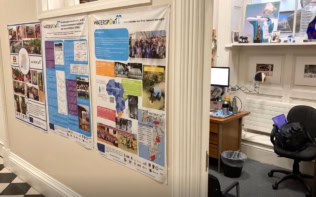
The UK government has announced a £2m-a-year scholarship programme to help persuade 100 graduates to become physics teachers. Each graduate who wins a scholarship will be awarded a £20,000 tax-free bursary provided they have got a place to study for a postgraduate certificate in education (PGCE) in England.
The new scholarships will be awarded by the Institute of Physics (IOP), which publishes physicsworld.com, as part of a pilot scheme that will initially last for one year. Students applying for a scholarship will require a first-class or upper-second degree and be intending to complete a physics or physics-with-maths PGCE.
The UK already offers a handsome bursary scheme for graduates in certain subjects to train as teachers. Currently, graduate students in physics are awarded £5000 by the Training and Development Agency if they enrol and complete a PGCE course. This existing bursary will remain for those students with poorer lower-second degrees or students who fail to get on the new IOP scheme.
“In physics, teaching is sometimes seen as profession if you have a 2:2 degree, while those who have a 2:1 or first go into research,” says Peter Main, director of education and science at the IOP. “This initiative is about raising the status of teaching as a profession so that the top students are attracted to it.”
According to the IOP, about 1000 new specialist physics teachers in England will be needed every year for the next 15 years to ensure that the subject is taught entirely by specialist teachers. Last year 275 fewer trainees were recruited to physics teaching-training courses than were needed to start plugging the gap.
Keith Taber, senior lecturer in science education at the University of Cambridge, says the new initiative is important in a number of ways. “First, these bursaries will be awarded to high-quality candidates; and as the IOP is administering the process, successful candidates will need to show that they have the qualities required to be good teachers,” he says. “The second important feature is that after many years when physics was not recognized or even mentioned as an explicit discipline within the school curriculum, it is now being accepted that while physics teachers are science teachers, they bring a particular expertise as physics specialists to complement other science specialists in a school.”
Taber adds that a teaching career is now an “attractive” option for graduates who wish to use their mathematics expertise but are not keen on teaching biology and chemistry topics. “The initiative allows new teachers to choose to prepare to teach physics with maths rather than prepare to teach science as a physics specialist,” he says.
Students looking to get their hands on the first round of scholarships will have to act quickly as the deadline for online applications is 6 December 2011. Successful applicants will then attend an interview at the IOP’s London office, expected to be held on 20 December. Five further opportunities to apply will available next year.



